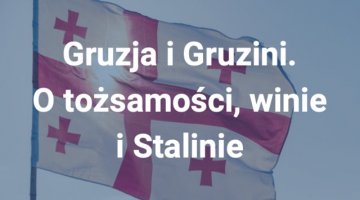Local elections in Georgia
Local elections held in Georgia on 15 June were won by Georgian Dream (GD), the coalition which has been ruling since 2012, with 51% of the vote. Second place went to the opposition United National Movement (UNM, which held power from 2004 to 2012) with 22%. Turnout was 43% (6 percentage points lower than the 2010 elections). The ruling camp has a clear lead , but it failed to win a number of important positions in the first round of voting, including the mayoralties of 8 of the country’s 12 largest cities where the post is elected directly, among them Tbilisi. Therefore a second round of voting will be held in the second half of July.
The office of the EU’s High Representative for Foreign Affairs and Security Policy issued an announcement declaring the elections were “a step in the democratic development of Georgia”, but drew attention to cases of political violence and the intimidation of opposition candidates during the election campaign.
Commentary
- Despite the good results, the scale of Georgian Dream’s victory is less than pre-election expectations, and the need for a second round of elections in up to eight major cities, including the capital, should be regarded as a blow to its image. Together with the relatively low voter turnout, these results indicate a weakening of the political mobilisation of Georgian society, which has been ongoing since the parliamentary elections of 2012 which brought GD to power and a painful defeat to Mikheil Saakashvili’s camp. This could herald sharper public criticism of the ruling camp than has been heard over the past two years, especially in a situation where (according to the results of a survey commissioned by the National Democratic Institute this April) the Georgian public has not experienced any improvement during this period in the most important social issues, namely unemployment and poverty.
- There was a better than expected result for the United National Movement, which as a party repeated the figures of its currently most popular politician, Davit Bakradze, in last year’s presidential election. This indicates that, despite the aggressive rhetoric of the government and the recurring, though not massive, incidence of pressure on opposition representatives, the UNM has not ceased to exist, even though it was ousted from power two years ago; it has maintained its position as the most important opposition force, and appears to be partially rebuilding its public support. In a situation where the historical leader of the group, Mikheil Saakashvili, is outside the country (in fear of a possible attempt to hold him criminally liable), and the former Prime Minister and General Secretary of the party, Vano Merabishvili, is in prison, the PRC’s younger politicians are coming to the fore; in the eyes of society they are less responsible for the abuses of the period 2004-2012.
- Conservative, nationalist, West-sceptical and implicitly pro-Russian forces (Nino Burjanadze’s coalition and the ‘Patriots’), which together received 15% of the votes, have gained a stronger presence on the political scene. This result is consistent with the growing presence of such voices in the public discourse. This trend is boosted by the increasingly powerful political position for the Georgian Orthodox Church, as well as the public involvement of the millionaire Levan Vasadze, who is well known for his conservative-nationalist views.




